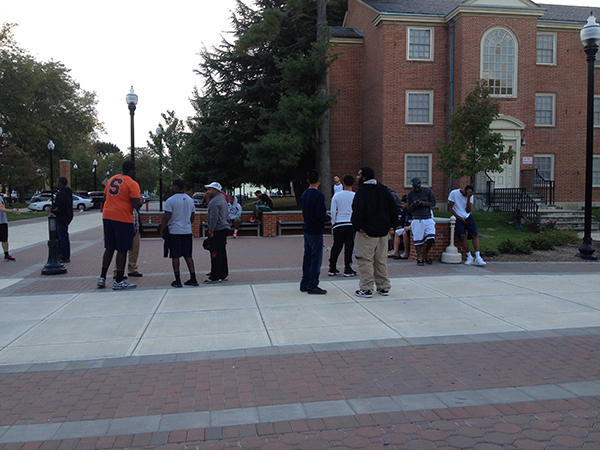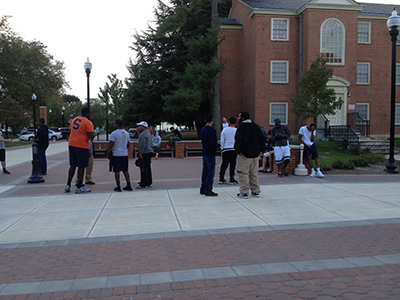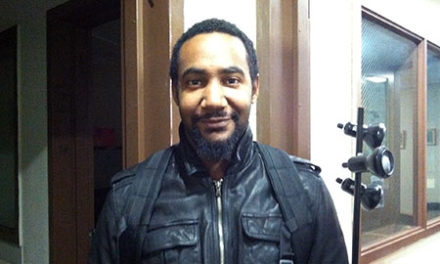By Alainna Caitlyn Earl, (The Whetstone, Contributor)

The next time you disregard a fire drill, you may be putting your life at risk. Linnea Cavallo / The Whetstone
The next time you disregard a fire drill, you may be putting your life at risk.
Back in 1987, students didn’t think fire drills or fire safety was important, and it cost one Wesley student his life.
In April 1987, a fire broke out in Williams Hall, killing one student, Christopher T. Steven, injuring three others and causing hundreds of thousands of dollars in damage.
The fire was a deadly climax to months of indifference toward fire safety by students, said Walt Beaupre, head of security. Fire investigators found evidence of smoke bombs, lighter fluid sprayed on walls and ignited and smoke from burning candles used to write obscenities on the wall.
Wesley has had no other fires of that magnitude.
Several small fires in Zimmerman Hall have been caused by improper kitchen cooking, said Elana Baukman, assistant resident director in Zimmerman.
“The first fire drill we had here, a girl came out seven minutes after the alarm sounded and another girl stayed in the shower,†said Maurice Copeland, an RD in Roe. “If it had been a real fire, they would’ve died.â€
Several students said they didn’t care about fire drills.
“I don’t think they’re effective,†said sophomores Sameer Rajaskha. “I would change them to more convenient times.â€
Sophomore Jabari Savage disagrees.
“I think they’re effective,†he said, “but more convenient times, not seven in the morning, we should have to practice the drill.â€
Baukman said she schedules the fire drills in each hall.
“Fire drills are done at the beginning of each semester,†she said. “I talk to all the RDs and security for when they’re available.â€
The point of the drills, she said, is to show students how to exit the buildings correctly and find their place in the parking lot.
Beaupre said the school also conducts surprise fire drills.
“The security staff work with residence life at the beginning of each semester to conduct ‘no notice’ fire drills,†he said. “We make certain the students know how to evacuate and know the designated location of where they need to meet once they evacuate. We usually coordinate with the Dover City Fire Marshal’s office.â€
Copeland said that, despite brick walls and sprinklers, it’s still important to follow the fire drills.
“It’s an inconvenience but it’s one you have to take,†he said. “You never know when a real fire can happen, and if you ignore it, you’ll be dead.â€




